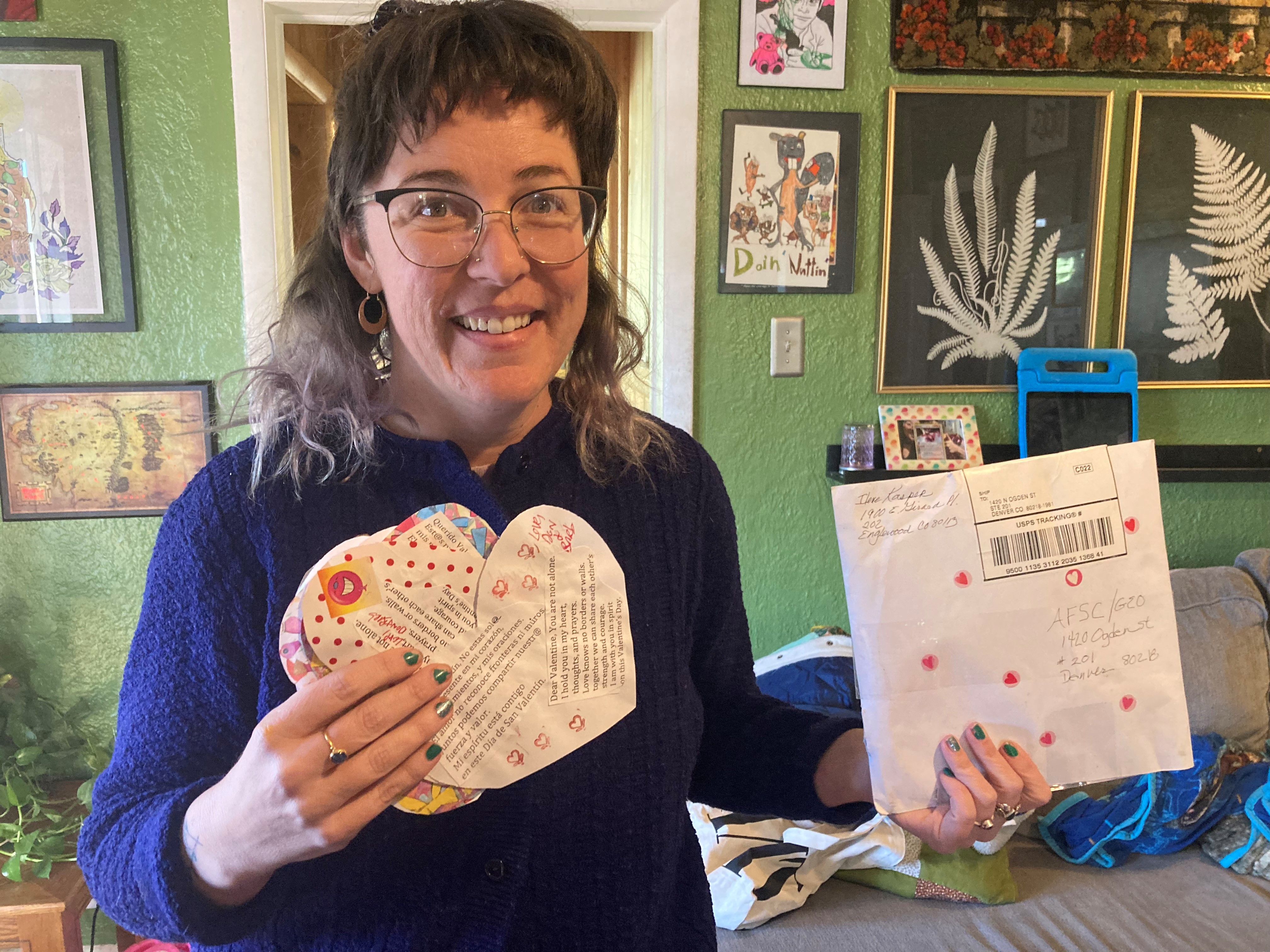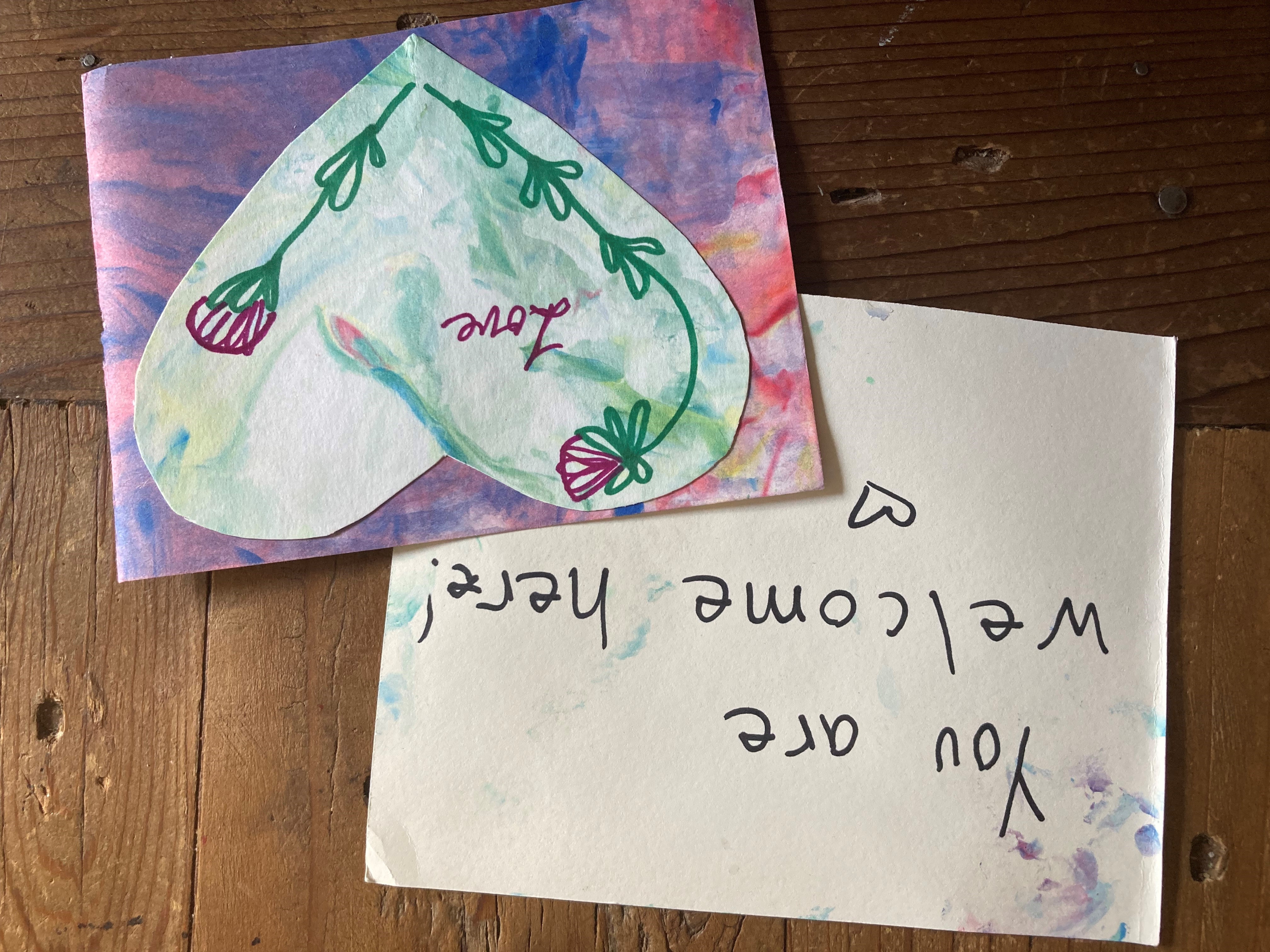
Volunteer Danielle Helm gathers Valentine's cards to deliver to immigrants jailed a detention center in Aurora, Colorado. Jordan Garcia / AFSC
Every February for over a decade, AFSC has delivered handmade Valentine’s cards to immigrants jailed at a for-profit detention center in Aurora, Colorado. On Feb. 11, a small delegation delivered the cards to the detention center so that they could be distributed throughout the center over the weekend in time for Valentine’s Day.
Watch the video below.
We’ve always made sure to have a Valentine for every single person in detention. This year, we delivered more than 600 cards. Some years, we have had as many as 1,500.
These cards are crafted by people in churches, youth groups, classrooms, and book clubs and others across the state to show love and solidarity with people in detention. As part of the cardmaking, we encourage community members to sit with their friends and family, learn a little bit about immigrant detention, and make something beautiful from the heart for another person.

The Aurora detention center where we deliver these cards is operated by the GEO Group, the second largest private prison corporation in the United States. Conditions inside the detention center—like all carceral facilities—are unsanitary and inhumane. Immigrants face abuse, neglect, and a lack of access to health care. In this pandemic, detention has become especially deadly. People sleep and eat in close proximity to each other. Many don’t even have soap, masks, or basic hygiene supplies. Not surprisingly, COVID-19 cases have surged in ICE detention facilities.
In addition to the Valentine's delivery, we also hold regular vigils in front of the GEO facility. These efforts are a way to remind both people inside and community members outside that that we will not turn away from this injustice. We will keep organizing and advocating for their dignity—and for their right to be free.

“I love participating because it helps me educate my kids and community about the awful realities of detention and immigration issues," says volunteer Danielle Helm. "It helps us connect with love across walls and borders. I think about what it might be like to receive these notes, and it feels good to be able to say, you aren't forgotten, someone somewhere cares about you and knows that what is happening to you is not right.”
For the past two years, AFSC has worked with communities across the U.S. to advance the call to #FreeThemAll. Together we are demanding the release of people from detention so they can return home to their families and communities—as part of our ongoing work for a future without incarceration. We have engaged medical professionals to speak out about prison conditions and call for improvements. We also accompany people with loved ones in detention and accompany immigrant leaders who have experienced or been impacted by this injustice. Members of our Not1More Deportation Table meet with our Congress people, share their stories, and advocate for change.
We hope you join us in working for a world free of detention. Here are two ways you can help today:

1) Take Congress to stop funding cruelty against immigrants: It’s time to cut funding for Immigration and Customs Enforcement and Customs and Border Protection. Instead, we need investments in community-based alternatives that keep families and communities together and other programs our communities need.
2) Tell elected officials: Protect incarcerated people from COVID-19: Urge officials to release as many people as possible, allow released people to remain home in their communities, and take other steps to protect people in this pandemic.